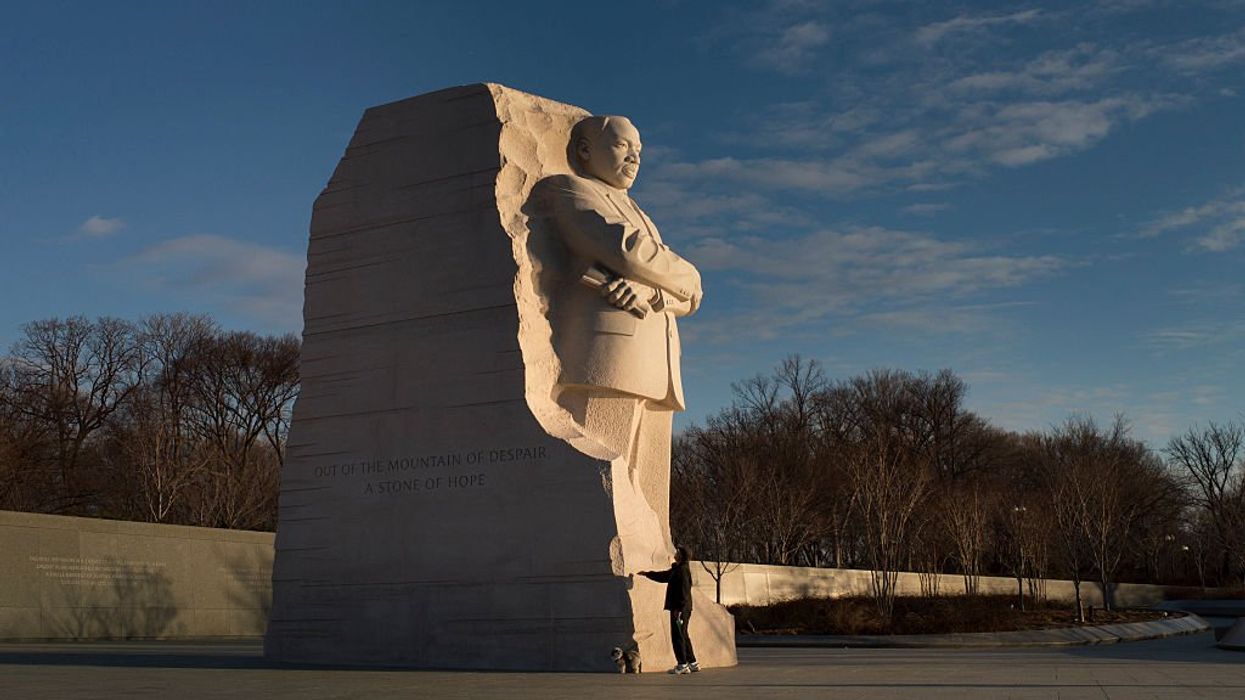“The arc of the moral universe is long, but it bends toward justice.” The Rev. Martin Luther King Jr.’s familiar words, inscribed on his monument in Washington, D.C., now raise the question: Is that true?
A moral universe must, by its very definition, span both space and time. Yet where is the justice for the thousands upon thousands of innocent lives lost over the past year — whether from violence between Ukraine and Russia, or toward Israelis or Palestinians, or in West Darfur? Where is the justice for the hundreds of thousands of “disappeared” in Mexico, Syria, Sri Lanka, and other parts of the world? Where is the justice for the billions of people today increasingly bearing the brunt of climate change, suffering from the longstanding polluting practices of other communities or other countries? Is the “arc” bending the wrong way?
It can be tempting to surrender hope, given the enormity of the world’s grief. In contrast to such despair, MLK’s notion of justice was grounded in his religious faith. This understanding of justice grows out of the simple, unyielding conviction that, in the end, good triumphs over evil — right overcomes wrong. But this is not mere wishful thinking, blind to the darker elements of human history and human nature. It instead expresses a vision beyond our current sight.
This faith-based hope provides a perspective beyond a single lifetime, and it is what empowered MLK to continue his fight even when he knew his days might be numbered — even as he became aware of threats against his life. In his final speech — given at a 1968 sanitation workers’ strike the night before he was assassinated in Memphis, Tenn. — MLK prophetically proclaimed, “I may not get there with you. But I want you to know tonight, that we, as a people, will get to the Promised Land!”
MLK’s courage in continuing to make public appearances demonstrates that his hope for justice was not grounded in simplistic optimism or a naive sense of inevitability; it was grounded in personal responsibility. MLK’s lesson is clear: The arc of the moral universe bends not from gravity but from the gravitas of our collective struggle to improve our communities, our society, and our world. The arc of the moral universe does not passively bend; it is actively bent. We bend it.
In many ways, we have been bending it. By transforming from a nation with entrenched slavery and complete racial subjugation into one with more freedom (albeit still with major challenges), we have been bending it. By transforming globally from a fractious population that killed tens of millions in world wars into an international community with more sustained stretches without global conflict (albeit again with major challenges), we have been bending it. In viewing the arc beyond our lifetime — in looking across the lengthy span of generations or even centuries — we continue to bend it.
So, as we commemorate Martin Luther King Day—along with a very polarizing Presidential Inauguration Day—let us remain vigilant and hopeful. Let us borrow from MLK’s conviction and courage, as many of us fight to find our own. And let us all remember, especially with the crushing weight of today’s mounting tragedies, that the arc of the moral universe is long — much longer than our lifetime — yet so must be our collective continued commitment to bending this arc toward justice.
This is an adapted version of the author's article that first appeared in the Boston Globe on January 14, 2024.
Dr. Chika O. Okafor (@chikaokafor.bsky.social) is a Postdoctoral Fellow at the National Bureau of Economic Research, the Founder and CEO of Todaydream, and an incoming Assistant Professor of Law at Northwestern University. Previously, he served as a researcher with the Martin Luther King, Jr. Research and Education Institute at Stanford University.




















Marco Rubio is the only adult left in the room